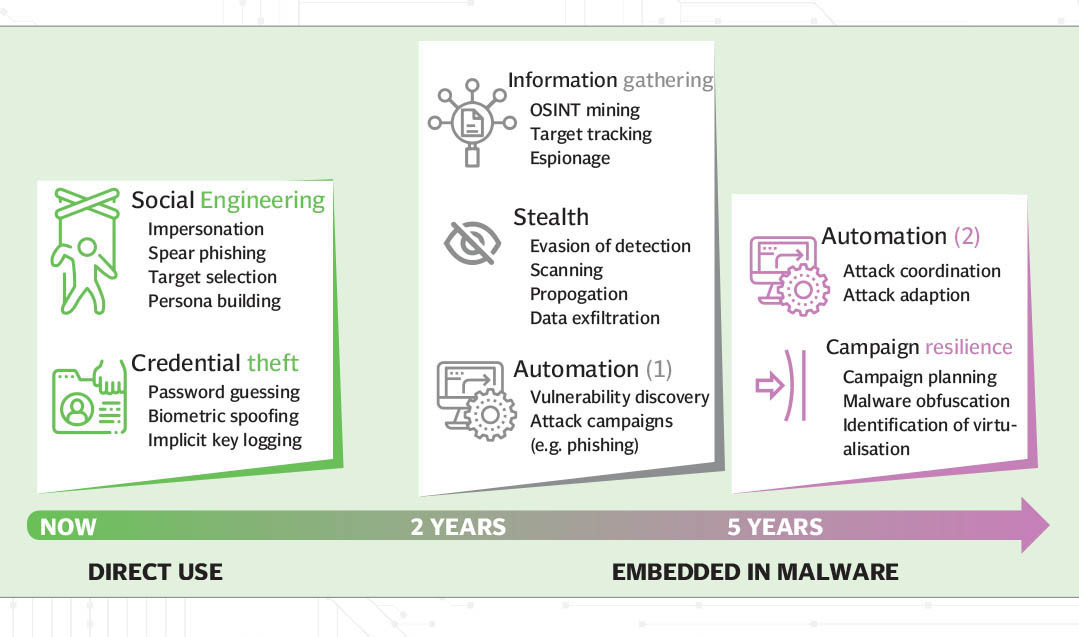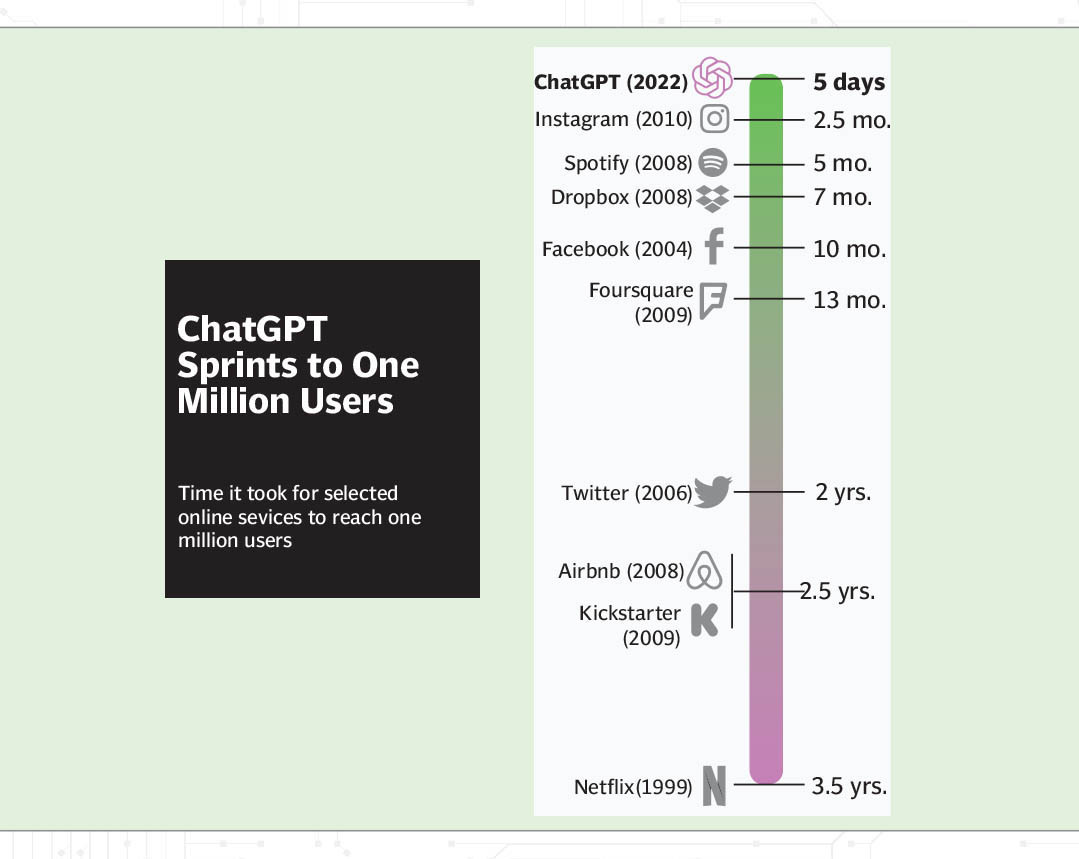A softly lit classroom brims over with the palpable energy of hope. The 20-some-year-old teachers, such as Bilal Rashid and Dua Fatima, who teach chemistry and physics respectively, sat in disbelief watching a ChatGPT demonstration unfold before them at a teachers training session I conducted at Off The School (OTS), a Karachi-based nonprofit institute and an online platform making formal and technical education accessible to all.
As the advanced language model generates customised lesson plans, age-appropriate answers, educational games, and a variety of question papers on the projector screen, a mix of shock and uncertainty crosses their faces. “ChatGPT could increase teaching efficiency and provide education to out-of-school children,” I told them, and their expressions softened into smiles.
It was as if they were witnessing a magical spell being cast, one that had the potential to change the face of education in Pakistan. Just the way Harry Potter and his friends discovered the power of magic at Hogwarts, these teachers were discovering the power of ChatGPT in revolutionising education for children from underserved communities and improving its overall quality.
The staggering statistics of over 22 million out-of-school children in the country are a constant reminder for the urgent need for innovative solutions to tackle the education crisis, which is exactly why when I learned about the potential of ChatGPT, I knew I had to act fast.
I promptly trained over 100 teachers in three shifts at OTS, which has over 1,900 students from marginalised communities.
As my sessions on ChatGPT began, the advanced language model developed by OpenAI, the teachers couldn’t help but feel a bit awed. As we explored the boundless possibilities of ChatGPT, they asked about ethical considerations and potential dangers around integrating this technology into our education system.
How could we ensure that the use of ChatGPT is inclusive and equitable for all students in terms of privacy and student dependency on it?
What would the impact of AI [artificial intelligence for the uninitiated] on the education industry? The teachers wanted reassurance that AI integration would not replace them.
These were not just questions, but a call to action, to ensure that the integration of ChatGPT in the education system is done in a responsible and equitable manner, for betterment of education and the future of our students.

A tale of power and consequence
Despite the excitement and optimism about the ChatGPT integration in education, the teachers were concerned that students may lose their creativity and critical thinking skills by becoming overly reliant on the tool.
“The biggest danger is that content produced by ChatGPT is so original that it does not get caught by plagiarism check,” says OTS Principal Waris Husain, an experienced educator for over 30 years. “This means that homework and assignments might become effortless and meaningless, and new checking criteria may be required.”
Husain’s concerns are valid, as the integration of any new technology in education must be done with caution. I reminded him how Google and digital whiteboards were also met with similar apprehensions in the past, but today Google is an integral part of our lives.
“Instead of having a rejection mindset for technology, we should be the first to embrace it,” I told him. “This way, we can deal with the upcoming challenges quickly and appropriately.”
Hafiz Hafeezur Rahman, the Islamiat teacher was curious about how ChatGPT could help him create more authentic, engaging, culturally relevant and interactive lessons.
One of the most remarkable capabilities of ChatGPT is to generate customised lesson plans, multiple quizzes and learning objectives tailored to the student’s specific needs and capabilities. It saves teachers valuable time and energy and ensures that the material being taught is engaging and interactive. “Imagine being able to provide customised teaching for each student in your class rather than using a one-size-fits-all approach,” I explained. “ChatGPT will provide you content based on a student’s level of understanding and progress.”
ChatGPT can also assist teachers by providing access to a vast amount of information and resources on different cultures, religions and historical events. “You can input a topic or a question in a clear and specific way, and ChatGPT will generate a lesson plan complete with objectives, activities, and assessments, saving you hours of preparation.”

A journey through the realms of possibility
As the session progresses, the teachers are in for yet another surprise when OTS studio head Omama Ansari and OTS Content Strategist Jahanzaib Sheikh share their experiences of how ChatGPT has revolutionised OTS’ approaches to education.
“OTS has already started creating personalised lesson plans for students of all ages, through ChatGPT, tailored to the needs and abilities of each student,” reveals Ansari, a computer systems engineer from NED University. “In addition, OTS has also begun incorporating visual aids and interactive tools to make it easier for students to conceptualise and understand the material. We have also shared educational videos on social media and offer live classes to reach millions of out-of-school children.”
Sheikh, who has studied Space Physics and Mass Communication at Karachi University (KU), emphasises the importance of speed in the fight against the lack of education. What could previously take years and an exorbitant amount of money can now be accomplished in a matter of months with ChatGPT, he apprises, adding that teachers in Pakistan must take advantage of this technology.
1675583424-1/Chatgpt-(2)1675583424-1.jpeg)
Teachers’ friend or foe?
Teachers fear that they may become redundant and lose their jobs, once ChatGPT is integrated in education.
One solution is to upskill and reskill teachers with the necessary technology to enable them to take advantage of AI and use it to enhance teaching rather than becoming redundant. Additionally, the government and educational institutions should invest in training and development programmes to integrate AI into education to help teachers adapt to the new technology and use it effectively in classrooms.
New roles and opportunities such as technology coordinators or AI specialists that focus on the use and development of AI must be created. This can mitigate job losses and create new employment opportunities in the education industry.
Legal issues
Towards the end of the session, Syed Shahabuddin, a lawyer discussed the legal and ethical challenges of using Chat GPT in the classroom. Acknowledging that it has the potential to revolutionise education and increase efficiency, he pointed out that it should be used lawfully and ethically.
Privacy is an important concern, as ChatGPT is trained on a vast amount of data, including students’ personal information. Shahabuddin proposed that the use of ChatGPT in education must comply with data protection laws, such as the General Data Protection Regulation (GDPR) and the Protection of Personal Information Act (POPI) of Pakistan.
“Schools and educators must have a clear data protection policy in place that outlines the use and storage of student data generated by ChatGPT,” he suggests.
Another ethical concern raised was the potential for bias in ChatGPT generated content.
“As the model is trained on data from the internet, it may perpetuate existing biases and stereotypes,” says Shahabuddin, proposing that the content must be reviewed and checked for bias before it is used in the classroom. He also suggested that the model must be trained on a diverse range of data to reduce the risk of bias.
“Fake news, propoganda and misinformation can have serious consequences, so it is crucial to have measures in place to mitigate the potential harm caused by ChatGPT,” he says regarding the tool’s potential misuse.
Shahbuddin proposed localised solutions to tackle the above challenges, such as setting up a regulatory body to oversee the use of ChatGPT in education and creating guidelines for its ethical use. Partnering with local universities and research institutions to study the impact of ChatGPT on education and to develop solutions to address any potential issues would ensure its ethical use.
Shahabuddin also highlighted the importance of intellectual property laws to protect the rights of content creators. A robust system could ensure that the content generated by the model is not exploited for commercial gain without the consent of the creators and that any violations of intellectual property rights are met with appropriate legal action. “If the content is clearly labelled as generated by a machine, it will not be passed off as original work and can help avoid copyright infringement issues,” he says.
1675583425-0/Chatgpt-(1)1675583425-0.jpeg)
The secrets of space and time
Dua Fatima, who apart from being a physics teacher is a computer systems engineer from NED University, used ChatGPT to create explanations of Einstein’s Theory of Relativity for all grade levels, from 6 to 10.
“Can you share what you came up with?” asked one of the teachers, almost in disbelief.
Dua eagerly read out aloud what ChatGPT had generated for her. “For Grade 6: Einstein’s Theory of Relativity is like a magic rule that helps us understand how things move in space. It’s like a secret code that helps us understand how the universe works.’”
The other teachers were impressed. “What about the higher grades?” another teacher asks. Dua continued, “ChatGPT explains for Grade 7, that the Theory of Relativity tells us that the speed of light is always the same, no matter how fast we’re moving. This means that time and space are connected in a way we never thought possible.”
“That’s really simple to understand,” one of the teachers comment.
Dua nodded in agreement. “And for Grade 8, Einstein’s Theory of Relativity helps us understand how gravity works by showing us that heavy objects like planets and stars can bend space and time.”
The teachers were amazed. “And for Grades 9 and 10,” read out Dua. “Albert Einstein’s Theory of Relativity is a concept that fundamentally changed how we understand space and time. It is based on the idea that the laws of physics are the same for all observers, regardless of their relative motion. This means that the speed of light is always constant and cannot be affected by any observer’s motion. This theory also introduced the concept of space-time and the idea that mass and energy are interchangeable.”
Bilal Rashid, who has a Master’s in Chemistry from KU, has used the tool create a game that teaches nomenclature to intermediate students.
Chasing the golden snitch
As the founder of OTS, I am excited and my mind races with the endless possibilities of ChatGPT. The thought that AI has the power to revolutionise the way we learn and teach and the potential for it to change the future of education in Pakistan fills me with hope. But as I look around, reality hits me like a sledgehammer.
Pakistan’s economic and administrative struggles make it difficult for students and teachers to access the technology and resources they need to benefit from AI. Unstable internet connection, expensive gadgets, and government apathy towards the education crisis are obstacles that must be overcome. But despite all of this, I refuse to give up.
I know that with determination and the right policies and investments, we can break through barriers and make AI accessible to all students and teachers in Pakistan. Together, we can create a future where education is truly for all, where the only way forward is through education.
The talking newspapers in Harry Potter were nothing but a fantasy. With advancements in AI, anything seems possible. It’s up to us to ensure that we are moving towards progress and not destruction, and that the future of education in Pakistan is one of hope and opportunity. Together, we can make this fantasy a reality.
Najam Soharwardi is an education advocate, freelance journalist and founder of the nonprofit Off The School. All information and facts are the sole responsibility of the writer.
